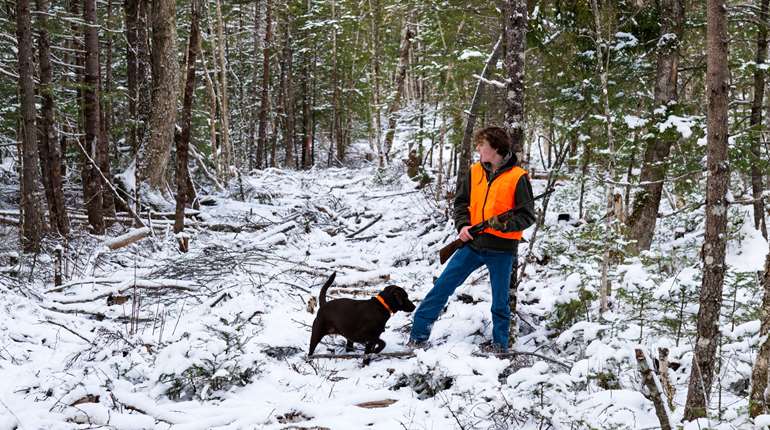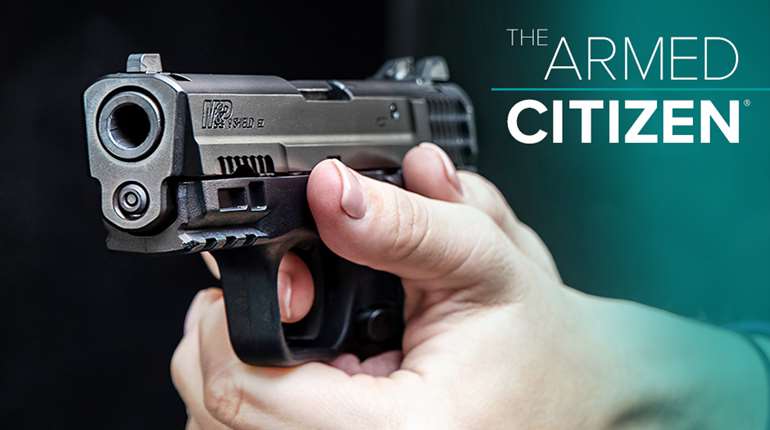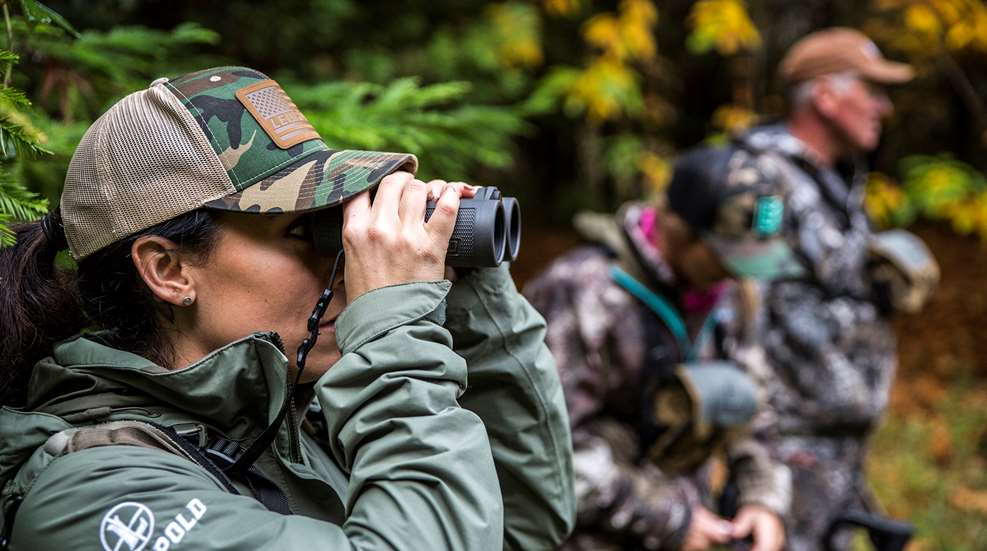
Hunting is a beloved tradition in much of the United States, with legendary stories, tall tales, cherished guns and invaluable skills passed down from one generation to the next. I grew up in a family of hunters, with four generations sharing one deer camp. In my small town, we hunted because our parents hunted. It was just what you did, a part of life, as natural as breathing.
A few months ago, a former coworker reached out to me to ask for advice on behalf of her boyfriend. He’s a 45-year-old person of color and has lived in an inner city his entire life, but he recently fell in love with hunting television shows (especially the ones that focus on the meat and healthy eating aspect) and is eager to try hunting. He’s been reading hunting magazines, watching hunting videos online, and absorbing all the information he can, but he doesn’t know how to get to the next step. How does someone who has no background in hunting actually hit the woods and get started?
It’s a question I had never really pondered, having grown up the way I did and taking for granted the things we “just know” that not everyone has been taught. Where DO you get started if you have no idea where to begin, especially as an adult?
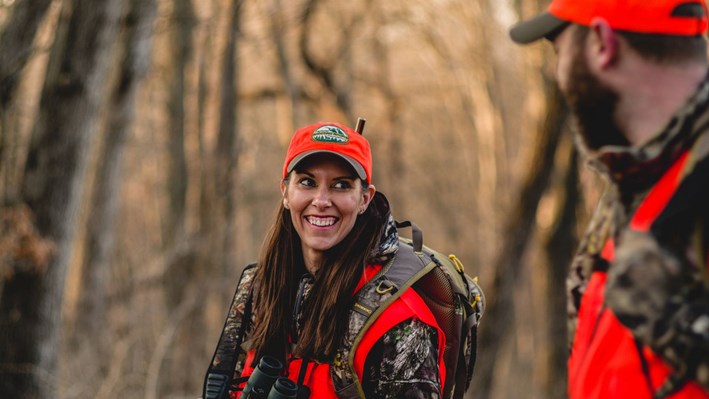
Image courtesy Howard Communications
Start Learning
The best way to get started in hunting is by finding a mentor who can take you under his or her wing, give you advice, loan you equipment or help you purchase your own, show you some land you have a reasonable chance of success on, and maybe accompany you on a few hunting trips. If you have friends or acquaintances who hunt, seek their advice. Let them know you want to start hunting but you’re unsure about what to do. Not all hunters will have the access and resources to let you tag along on their hunting trips, but any level of advice or assistance will be valuable.
If you don’t know anyone who hunts, look into mentored hunting programs run through the game department or volunteer organizations in your state. Many of these will be geared toward youth, but some states have programs designed for adults or specifically for adult women. Alabama’s Adult Mentored Hunt program, Illinois’ Learn to Hunt program and Texas’s Adult Mentored Hunting program are all examples, and you can find more at this link.
Another excellent option is the Becoming an Outdoors Woman program, which is facilitated by each state. Search for “Becoming an Outdoors Woman [Your State]” and check out a workshop in your area, where you can learn skills as diverse as firearms handling, archery, pine needle basket weaving, Dutch oven cooking, ATV handling, fishing and much more. Some states include an optional small-game hunt as part of the program as well. I have taken several of these weekend workshops and highly recommend the program.
You’ll want to soak up some knowledge, so start reading this website and some hunting magazines or books. Hunting television is mostly entertainment, so you might not learn a lot by watching, but you can get a feel for the basic experience. Look over our list of hunting lingo to familiarize yourself with some of the terms you’ll need to know.
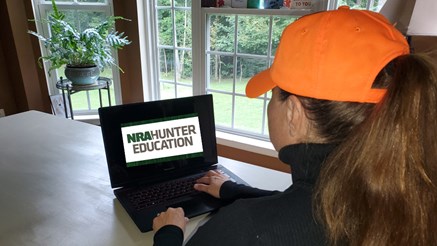
Before you can hunt, you’ll need to take a Hunter’s Safety or Hunter Education course. This is offered in every state, and you can take the course and pass the test online. That’s convenient, but an in-person class, although it takes the better part of an entire weekend, will give you some hands-on learning opportunities, the chance to meet fellow hunters, and some interaction with a game warden or experienced hunter who will be happy to answer your questions. At the class, you’ll receive a packet or booklet of information introducing you to the basics of hunting and firearms. I still have mine from 20 years ago and reference it occasionally. Search “Hunter’s safety course near me” to find a class.
What You’ll Need
You’ll need to purchase a hunting license from your state, and maybe a tag or special stamp depending on the game you plan to pursue. Your local sporting goods store can help you buy the proper license; alternately, it’s easy to do online as long as you know what you need. Every state will spell out what’s required on its game department’s website, and if you purchase your license in a store, they will probably have a copy of the current year’s rules and regulations booklet. Read it, especially the sections pertaining to the type of game with which you plan to start.
You’ll need to know how to shoot, of course. Some hunter’s safety courses will include range time. You can find an NRA training course near you focused on the type of shooting you plan to start with, you can take a different course at a local range, or you can hit the range with a friend who can show you the ropes. An instructor or knowledgeable friend can also advise you on the type of gun to buy for the type of hunting you’re going to do and help you purchase the correct ammo. If you’re starting with a shotgun, a few rounds of skeet or sporting clays will get you warmed up and more familiar with handling the gun. Rifle hunters will want to spend a few sessions at the range practicing and honing their aim.
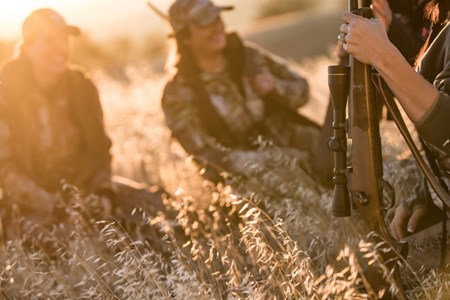
You’ll need a place to go hunt, too. If money is no object, you can find an outfitter who specializes in the type of hunting you’d like to start with. Be sure they are reputable (check their references) and let them know that you’re brand new to this. A good outfitter or guide will walk you through every step of the process and might even help you acquire any necessary tags. Some will even have guns for you to use if you don’t have your own. (Weatherby image)
For most of us, though, that’s just not financially feasible. As you develop in your hunting journey, you might eventually want to invest in a hunting lease or club in order to have access to hunting land, but for now, start with public land or land owned by a friend or acquaintance that they will allow you to hunt on (get permission in writing). Search “public land open to hunting near me” to get started. U.S. National forests and many state forests are open to public hunting, as is most BLM (Bureau of Land Management; mostly out West) property. You can also knock on landowner’s doors and politely introduce yourself and ask if they’d be open to allowing you to hunt on the property. This practice is less common than it used to be, but it can still be done successfully, especially if you offer to share meat or farm chores with the landowner.
Get Out and Hunt 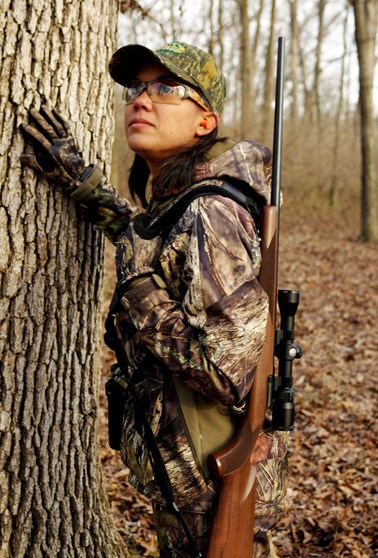
If you’re not going with a mentor and you’re hitting the woods strictly on your own, it’s a good idea to start small. Chasing squirrels, rabbits or upland birds like quail or grouse on a nearby farm or public woods is a great way to learn a lot about woodsmanship in a short amount of time. You’ll make many mistakes and spook a lot of game, but that’s part of the learning process. Small game offers more shot opportunities because, unlike big game, you’re generally allowed to take more than one animal. And, in most areas of the country, you’re much more likely to gain access to private land if you knock on the owner’s door and offer to shoot squirrels when everyone else is pestering him about hunting deer. (Howard Communications image)
Turkeys and waterfowl are a lot of fun to hunt, but in most cases, a little bit of calling skill is required for success. Don’t let this deter you, but do get a call and start practicing how to use it, using online videos to help get your sound right. Waterfowl hunting in particular can be pretty involved and gear-heavy, so it’s an ambitious place to start. If you’re 100 percent on your own, consider saving that for down the road.
You can start with big game, of course. As with most types of hunting, scouting is key to success—you have to hunt where the animals are or where they want to be. Going into the woods before the season starts and finding sign — that is, indications that animals have been there, including tracks, scat, rubs (in the case of deer) and other clues—will give you a place to start rather than just walking into the woods and hoping for some blind luck. Identify food and water sources that animals are using or are likely to use, and set up on the paths that lead to and from them for your best chance at success.
Whatever game you start with, manage your expectations and expect to come home empty handed much of the time—that’s just how hunting works. That said, begin with the end in mind. What are you going to do with that animal once you’ve harvested it? Small game and birds are relatively simple to clean in the field or at home, but big game requires more work and some space. If you’re going deer hunting by yourself, watch some instructional videos on how to field-dress a deer (that is, get the insides on the outside without making too much of a mess) and have a plan for butchering it yourself or identify a local processor you’re going to take it to after you gut it.
Then it’s time to appreciate the fruits of your labor in the kitchen—look up some wild game recipes and enjoy your organic protein.












